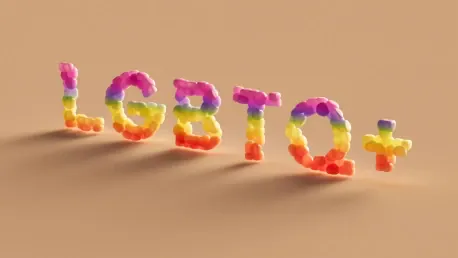Michael O’Flaherty, the Commissioner for Human Rights of the Council of Europe, has formally urged the Georgian Parliament to reconsider its stance on the controversial draft law “On Family Values and Protection of Minors.” The draft law, which has already cleared its second reading, has sparked significant concern for its potential to discriminate against LGBT individuals. According to O’Flaherty, this law contradicts the European Convention on Human Rights and stigmatizes LGBT people by equating sexual orientation and gender identity with crimes such as incest. This issue is not only a matter of domestic policy but also of international human rights standards that Georgia aspires to uphold.
Discriminatory Nature of the Draft Law
Stigmatization and Misrepresentation
The concern raised by O’Flaherty centers on how the draft law’s language fosters a deeply stigmatizing and hostile environment for LGBT individuals in Georgia. By drawing an inflammatory and erroneous parallel between sexual orientation, gender identity, and actions as reprehensible as incest, the bill not only misrepresents but severely harms the LGBT community. Such associations create a fertile ground for prejudice and discrimination, which are antithetical to the values espoused by the European Convention on Human Rights.
The alignment of sexual orientation and gender identity with criminal behavior perpetuates a dangerous narrative that can lead to increased social ostracization and violence against LGBT individuals. O’Flaherty argues that it is crucial for both national and international partnerships to dismantle these prejudices rather than enshrine them into law. By fostering this environment, the Georgian Parliament risks isolating a segment of its population, rather than protecting them, as it claims the draft law intends to do. International human rights principles demand legislative frameworks that protect all individuals from discrimination, cultivating an inclusive society.
Resemblance to Previous Bills
The controversial draft law bears a striking resemblance to a previously tabled constitutional bill, which similarly faced heavy criticism from human rights organizations and European bodies. Just as its predecessor, this new proposal has ignited fears of escalating hate and prejudice against the LGBT community. O’Flaherty reiterates the conclusions drawn by the European Commission for the Protection of Democracy through Law, which found that such legislative measures deepen hostile and stigmatized atmospheres. The European Court of Human Rights has reinforced the principle that democratic societies should reject stigmatization on the grounds of sexual orientation, seeking instead to recognize diversity as a cornerstone of cultural and social strength.
By mirroring the earlier, rebuked bill, the current draft law signals a regressive step in Georgia’s legislative landscape. This similarity raises concerns about the political motives behind the legislation and the potential long-term implications for human rights protections in the country. Not only does it undermine the efforts to promote tolerance, but it also jeopardizes Georgia’s standing in the eyes of global human rights watchdogs and its aspirations toward closer integration with European institutions.
Aligning with European Human Rights Standards
Call for Cooperation and Legal Protection
O’Flaherty’s recommendations go beyond critique; they emphasize the importance of active cooperation with both national and international human rights advocates to ensure a more inclusive and protective legal framework. The European consensus underscores equality and non-discrimination as fundamental principles. By adopting these standards, Georgia can create legislative measures that safeguard the rights of all its citizens, including those from minority groups like the LGBT community.
The collaborative approach advocated by O’Flaherty involves aligning Georgian laws with international human rights norms. This collaborative effort aims not only to revitalize the legal protection of minorities but also to promote broader societal acceptance and understanding. Such alignment is seen as vital for nurturing a democratic ethos that robustly rejects any form of legally sanctioned discrimination. Through dialogue and partnership with international bodies, Georgia can pave the way for inclusive legislation that enhances human rights protections for all its citizens.
Political and Social Implications
Michael O’Flaherty, the Commissioner for Human Rights at the Council of Europe, has made a formal appeal to the Georgian Parliament, urging it to reconsider the controversial draft law titled “On Family Values and Protection of Minors.” The draft law has passed its second reading but has caused significant outrage due to its potential discriminatory effects against LGBT individuals. According to O’Flaherty, the draft legislation stands in direct opposition to the European Convention on Human Rights. It unfairly stigmatizes LGBT people by placing sexual orientation and gender identity on the same level as crimes like incest. This is a pressing issue not only for Georgia’s domestic policy but also in the context of international human rights standards, which Georgia aims to uphold. Reconsidering this law is essential for Georgia to maintain its commitment to these standards and ensure that all its citizens are respected and protected under the law. O’Flaherty’s call to action highlights the importance of aligning national laws with broader human rights principles.









